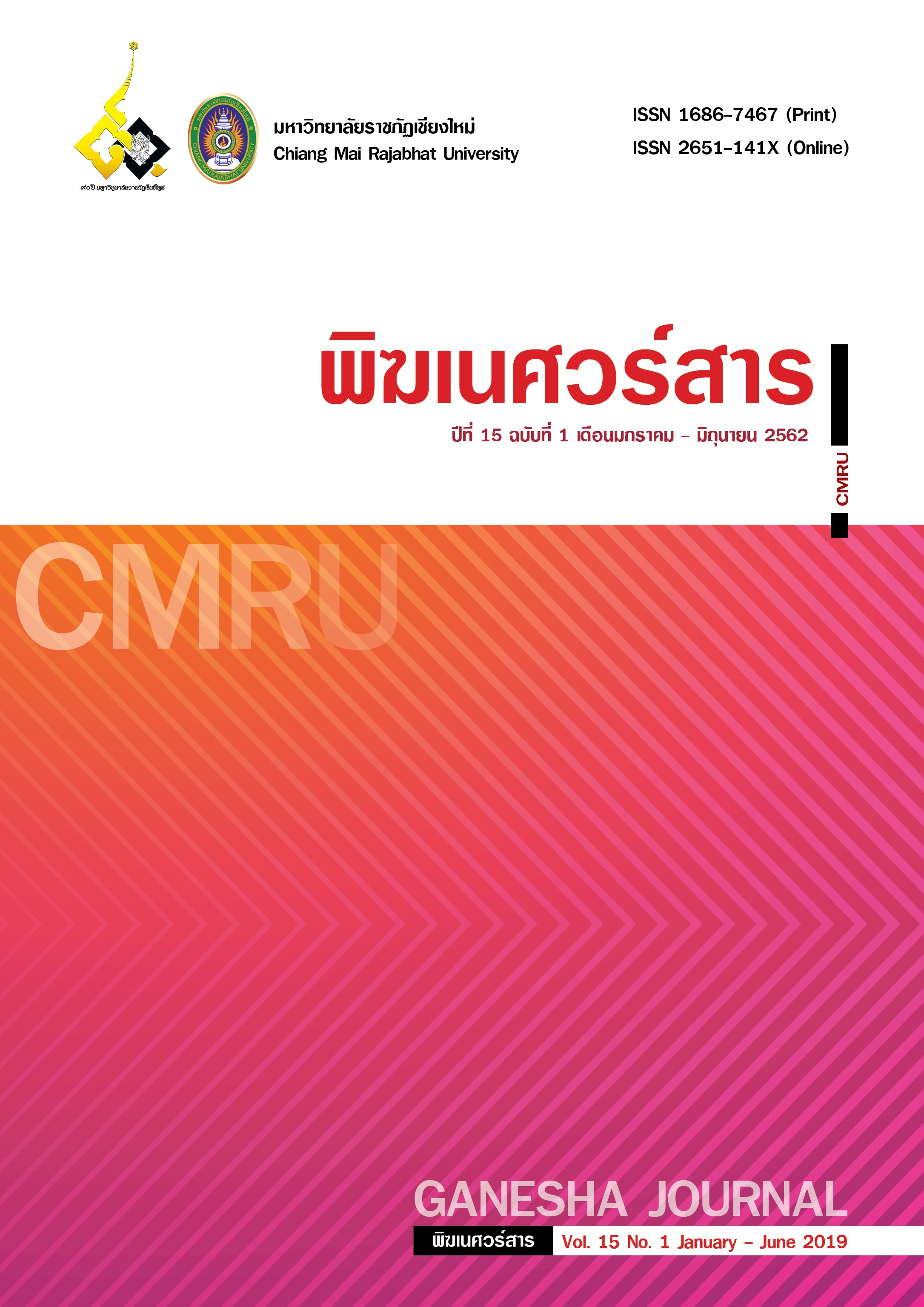A Study of Factors Affecting to Taxpayers’ Satisfaction of E-Filing System in Thailand
Main Article Content
Abstract
The purpose of this research study were to study taxpayers’ satisfaction with the tax e-Filing system, and to study the factors affecting taxpayers’ satisfaction. The sample used in this research, obtained from convenient random sampling from those who submitted tax information online via e-filing of the Revenue Department in 2018, numbering 400 people by collecting data online.
The results showed that the perception of convenience, perceived benefits, quality of information, and the quality of the system affected the taxpayers' satisfaction through e-payment system. The finding also indicated that the Revenue Department should develop and redesign the existing e-filing system architecture and permission of return in place to ensure convenience and ease of use to the taxpayers to motivate them to use it in the future.
Downloads
Article Details
The articles published are copyrighted by the Graduate School, Chiang Mai Rajabhat University.
The opinions expressed in each article of this academic journal are solely those of the individual authors and do not reflect the views of Chiang Mai Rajabhat University or its faculty members. The responsibility for the content of each article rests entirely with the respective authors. In the event of any errors, the authors alone are responsible for their own articles.
References
Ambali, A. (2009). E-government policy: Ground issues in e-filing system. European Journal of Social Sciences, 11(2), 249-266.
Andriani, D. F., Napituplu, A. T., and Haryaningsih, S. (2005). The user acceptance factors of e-filing system in Pontianak. Journal of Theoretical and Applied Information Technology, 95(17), 4265-4272.
Brown, I. T. (2002). Individual and technological factors affecting perceived ease of use of web-based learning technologies in a developing country. The Electronic Journal of Information Systems in Developing Countries, 9(5), 1-15.
Calisir, F. and Calisir, F. (2004), The relation of interface usability characteristics, perceived usefulness, and perceived ease of use to end-user satisfaction with enterprise resource planning (ERP) systems. Computers in Human Behaviour, 20(4), 505-515.
Davis, F. D. (1989). Perceived usefulness, perceived ease of use, and user acceptance of information technology. MIS Quarterly, 13(3), 319-339.
Islam, M., Ahmad, T. S. T., Yusoff, W., Yusuf, M. H. D. (2010). Factors affecting user satisfaction in the Malaysian
income tax e-filing system. Proceedings of MUCET2010 Malaysian Technical Universities Conference on
Engineering and Technology, June 28-29, 2010, Bayview Hotel, Melaka, Malaysia.
Mahmood, M. A., Burn, J. M., Gemoets, L. A. and Jacquez, C. (2000). Variables affecting information technology end-user satisfaction: a meta-analysis of the empirical literature. International Journal of Human-Computer Studies, 52(4), 751-771.
Mathwick, C., Malhotra, N., & Rigdon, E. (2001). Experiential value: Conceptualization, measurement and application in the catalogue and Internet shopping environment. Journal of Retailing, 77(1), 39–56.
Pikkarainen, K., Pikkarainen, T., Karjaluoto, H, and Pahnila S. (2006). The measurement of end-user computing satisfaction of online banking services: Empirical evidence from Finland. Int. Bank Mark, 24(3), 158-172.
Rios, E. R. and Riquelme, E. H. (2008). Brandequity for online companies. Marketing Intelligence& Planning, 26(7), 719-42.
Roldan, J. L, Leal A. (2003). A validation test of an adaptation of the Delone and Mclean’s model in the Spanish eis field. IGI Publishing Hershey, PA, USA.
Sekaran, U. (1992). Research Methods for Business – A skill building approach. (2nd Ed). United States of America: John Wiley & Sons, Inc.
Swaid, S.I. and Wigand, R.T. (2007). Key dimensions of e-commerce service quality and its relationship to satisfaction and loyalty. Proceedings of the 20th Bled e-Conference e-Mergence: Merging and Emerging Technologies, Processes and Institutions, June 4-6, Bled, Slovenia, 1-15.
Taylor, S. and Todd, P. A. (1995). Understanding information technology usage: A test of competing models. Information Systems Research, 6(2), 144-176.
Wang, Y.S. and Liao, Y. W. (2007). Assessing e-government systems success: A validation of the delone and mclean model of information systems success. Government Information Quarterly, 25(4), 717-733.
Yoon, C. (2009). The effects of national culture values on consumer acceptance of ecommerce: online shoppers in China. Information & Management, 46(5), 294-301.
Zaidi, R. K. S., Henderson, D. C. and Gupta, G. (2017). The moderating effect of culture on e-filing taxes: evidence from India. Journal of Accounting in Emerging Economies, 7(1), 134-152.


